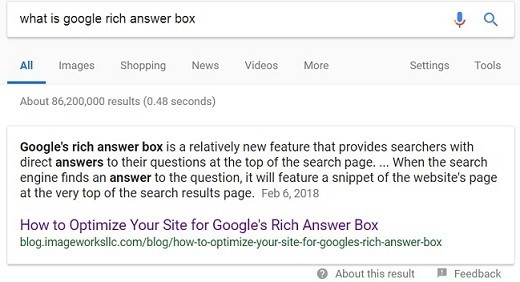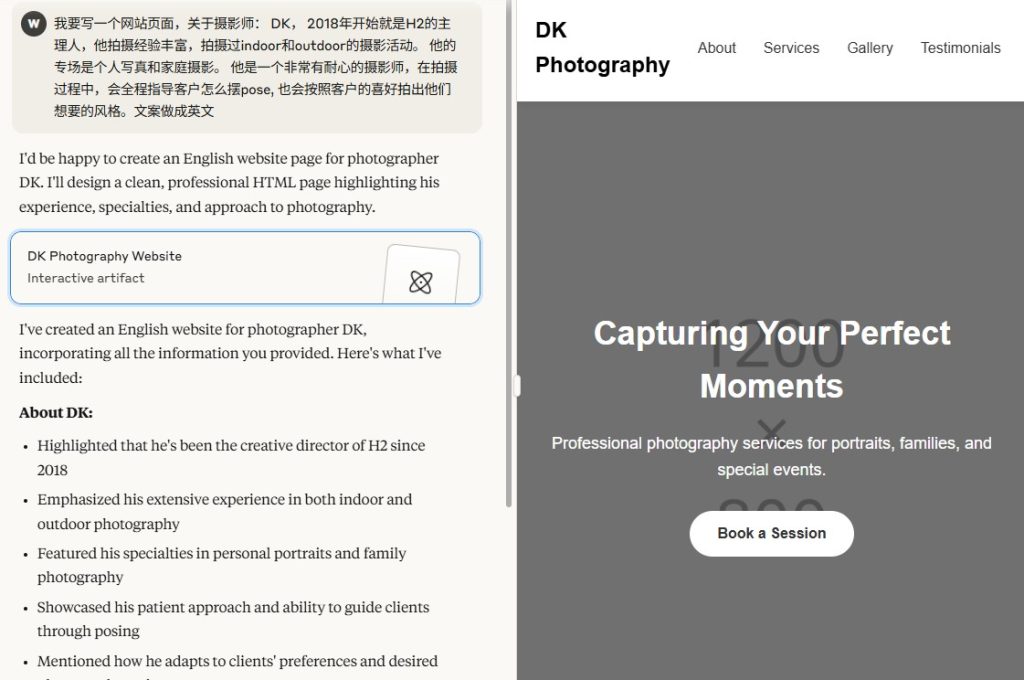Today, having a website proves the existence of your business. If you have that in place, good for you. But don’t just stop there. Take one more step further to make this website worth investing.
Ask yourself. Have your website been optimized?
This optimization is called Search Engine Optimization (SEO). There is a reason why big brands and expert bloggers prioritize the practice. This is what gets you noticed.
What is SEO?

Having a website is all about impressing the key players. It is not enough if YOU like the look and content of your site. You need the thumbs up from search engines (such as Google) and visitors who viewed your site.
The process of SEO helps you get it right.
During SEO, you audit and edit your website (using tactics we will discuss below) to rank it higher on search engine lists or SERPs (Search Engine Results Pages). This rating is based on how you perform according to the set guidelines search engines follow. These guidelines often relate to what visitors prefer, so you will not only impress an algorithm but also real audience.
TSEO tactics can be grouped into 3 categories:
- White hat SEO
- Black hat SEO
- Gray hat SEO
Here’s an important fact: Don’t use all tactics on your website. Choose the ones that most suit your needs.
White, Grey, and Black Hat
Let’s dig deeper into each approach.
White Hat SEO

White Hat SEO is all about playing by the rules. Every change you make falls within the expectations and policies of the search engines. Your search performance improves, without you manipulating the system.
Methods associated with White Hat includes:
1. Correct Keyword Usage
You won’t be ranking high if you are not using the keywords associated with your business. Every time a search is made (related to your industry), Google will roam through the online universe to find websites with the searched keywords. So how will Google identify you if you are not using the right keywords in your content?
Some factors to keep in mind:
- Do not overuse keywords (a bad practice known as keyword stuffing)
- Try to spread the keywords throughout the content
- Make sure you use long tail keywords and synonyms too
You will need expert keyword research for the process, and thus we highly recommend that you consult an SEO professional.
2. Appropriate Link Building
Linking your website content to other sites is effective as it shows Google that:
- You did research to create your content
- It shows that your website is reputable and trust-able in providing valuable information to others
3. High Quality Content
Your content will be ‘rated’ by Google in terms of:
- Does it spark audience engagement?
- Does it use good grammar, punctuation and layout?
- Is it relevant to the topic or are you simply using keywords to attract an audience to sell your product/service?
Depending on the rating, Google algorithm will determine your credibility and usefulness of your content, ultimately affecting your site’s SERPs.
Black Hat SEO

Contrary to the tactics mentioned above, some website owners resort to Black Hat methods for a quick fix. If you want your search engine ranking to help you boost your bottom line, you may feel justified using them.
In contrast to White Hat SEO, Black Hat tactics manipulate the system, fooling the Google algorithm into perceiving the site to be valuable and relevant than it really is.
1. Keyword Use Done Wrong
Keywords form a firm foundation of search engine methods and misusing them can led the algorithms to believe that have what the searcher is looking for, even if you don’t.
These methods include:
- Keyword Stuffing – Overusing of keywords in your content, with some completely out of context. This results to low-quality writing, with no real value to consumers.

- Irrelevant Use – Using keywords that are not related to your content, products or services with the sole purpose of attracting visitors into your site. Yet, searchers will not find what they are looking for in your page.
2. Inappropriate Linking
You manage to link and backlink your content to many high authority pages. Initially, this will look impressive and lead to higher ranking.
However, Google’s ideal is that web pages are only linked to the ones that are relevant. This helps users navigate between relevant pages. Thus, search engines disapprove irrelevant linking.
3. Low Quality Content
Using bad practices mentioned above, such as keyword stuffing, will result in low quality content.
4. Cloaking / Redirecting
This is a tactic in which the website is designed to redirect a visitor, without the visitor making an active choice.
For example, website owners will use keyword stuffing to get a web page noticed, attract visitors to click into the page, and upon so, redirect the visitors to another site where they sell their products. It is misleading, and all search engines frown upon this bad practice.
5. Hack other people’s website and put in the link
It is a very common strategy happened all the time, until now still some SEO company using this technique in Singapore.
I can’t tell you which company is doing this, but I guarantee, We don’t do it.



Do not risk it! It is possible for Google to identify this practice! When that happens, you will be dropped from your ranking or even worst, banned!
Gray Hat SEO
Gray Hat SEO is the gray area between White Hat SEO and Black Hat SEO. It is definitely not considered White Hat tactics, but it’s not wrong to execute some of it’s tactics.
1. Creating Hype to Attract Traffic
An excellent example is Clickbait.
Some may frown upon this tactic as it usually doesn’t provide searchers with the best content around. However, you will get traction, which forces search engines to consider you as a popular, quality source.
2. Duplicate Content
An example is copying content from other websites or using the same content on various websites you own. You are not necessarily doing anything wrong, but your methods aren’t in the interest of the searchers.
3. Keyword Use
Using too many keywords in content will often lead to low-quality content.
It could be difficult to discern whether it has crossed the line from white to gray. You can only ask yourself: “Are you doing what you are doing to benefit your visitors or to gain an advantage in the market?” If it is the latter, chances are, it is turning grey.
Focus only on White Hat SEO
You will face many risks if you choose to pick Gray or Black Hat SEO tactics.
Do White Hat tactics take longer for you to get to the top of the search engine results? Most of the time, yes.
But is it worth taking the risk for instant gratification?
When you focus only on White Hat SEO, you don’t risk being penalized or the possibility that your online reputation will be ruined.
So, believe us, sticking to the strict guidelines will serve you long term benefits.
How to Do SEO?
After reading the above, are you now browsing through your web pages, concerning that some of your tactics may be viewed as Black Hat SEO?
Let us help you regain control of the situation.
To learn more on SEO, read here.
Here, we will focus on 2 other important tactics:
- On-page SEO
- Off-page SEO
Both on-page and off-page SEO are necessary for achieving ideal SEO results.
On-Page SEO
On-page SEO requires access to the back end of the website and include changes to its structure, code, and content.
To determine whether you are on the right track with on-page SEO, ask yourself:
- Are you using the right keywords for your niche, without stuffing your content?
- Do you provide quality writing with valuable information?
- Does your content provides answers to questions searched?

- Do you use Meta and Title tags?
- Do you post new content regularly? Singapore best SEO expert recommend that you should aim to post 16 times a month.
- Is your website loading speed fast enough so that your visitors do not need to wait?
- Is your website mobile friendly?
- Is your content ‘easy’ enough to allow search engine crawlers to index your pages?
Off-Page SEO
Off-page SEO does not necessary require access to the website and focuses on “marketing” the site via the web, with tactics such as directory submissions, link juice and link bonding.
To determine whether you are on the right track with off-page SEO, ask yourself:
- Do you have high bounce rate? If so, consider improving content quality.
- How old is your domain? You can’t change your domain but it will seem more trustworthy the longer it stays. Alternatively, you may consider buying an existing domain.
- Do you have an online identity?
- Can you get more backlinks through guest posting?
- Did you tailor your content for your region and local dialect? Perhaps you are ready for a multilingual site to cater to more language groups.
- How often do people share your pages? Launching a campaign may help.
Off-page SEO is generally more difficult compared to on-page SEO as you do not have control over all aspect. It takes time to master the art of off-page SEO so we highly recommend that you seek professional help from SEO experts.
Conclusion
Google and all other search entities never provide a clear guidelines on how web pages are rated. This would only give fraudsters the opportunity to manipulate the system.
However, it doesn’t mean there are no ways in increasing your probability of ranking higher in the search engines.
By using the white hat methods taught above, you stand an excellent chance reaching the top of the search results and most importantly, STAYING there.
This potential long term success should strive you to play by their rules.
Are you ready to start optimizing your site and enjoy the numbers of benefits in reaching a larger audience? Our Singapore SEO expert can help you.







